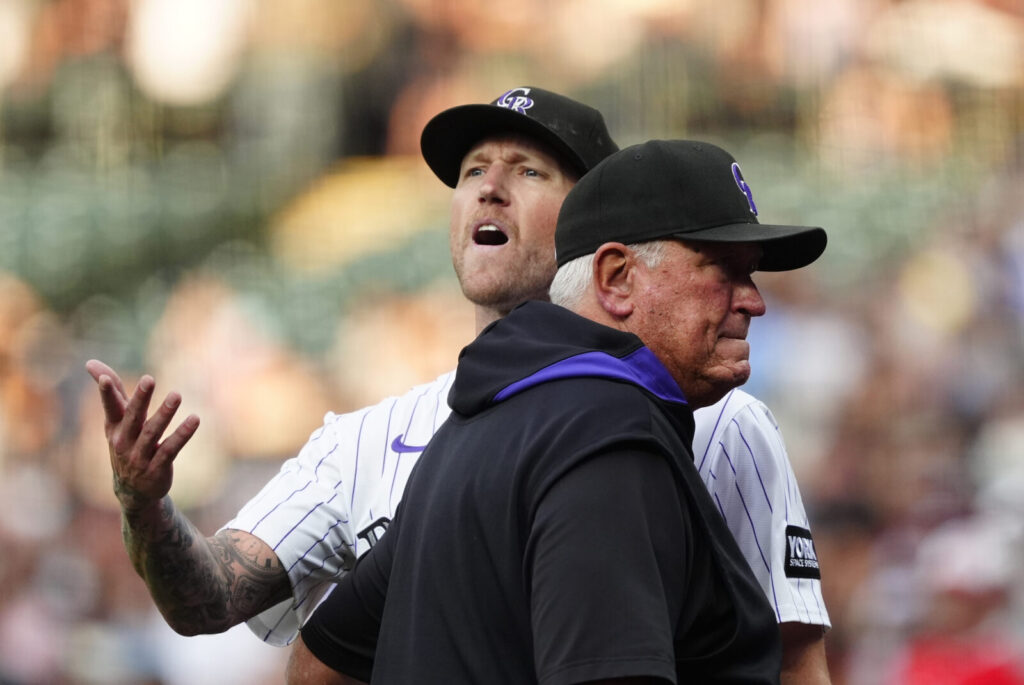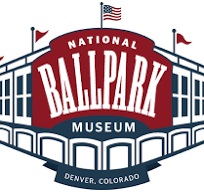Strike 3: They don’t throw yellow flags and call taunting penalties in Major League Baseball. When taunting happens, it’s pretty much up to the players on the field to handle things themselves.
Young people are probably tired of hearing about the way the game used to be played, and that’s understandable. Nonetheless, it needs to be known that before the “Hey, check me out…I did something special” Era became acceptable to many who watch, taunting – or excessive celebrations of any sort – would earn a player a fastball to the ribs the next time he came to bat. Then the matter would be settled, and no one would get tossed out of the game unless things continued to escalate after that.
Players just didn’t do that stuff to one another and expect everything to be okay.
A week ago, Kyle Freeland took the mound at Coors Field looking for a rare win at home against the San Francisco Giants. After giving up yet another bloop hit to start the contest, Freeland grooved one to the Giants’ Rafeal Devers, who promptly deposited it in the right field seats. That was the only thing that was prompt during the situation. Devers decided to stand at home plate and admire his first inning, 2-run homer, as if he had just launched a game-deciding shot that sent his team to the World Series or something. In actuality, it was Devers’ 30th home run of the season. So he had done it before, even if he decided at that moment not to act like it.
What Devers needlessly did was “show up” Freeland. And showing up an opponent remains a no-no in MLB, at least among the combatants. Freeland later termed it “disrespectful.” At that moment, he voiced his displeasure to Devers – likely telling the batter to “f***-ing run” before the batter finally tossed his bat aside and decided to begin his slow trip around the bases. They exchanged harsher words, the benches emptied – as is the custom in the big leagues when these kinds of things happen – and Freeland, along with a pair of Giants not named Devers, were ejected over the confrontation.
Later, some questioned Freeland’s actions, saying in effect that if you don’t like a batter watching the ball fly over the fence, don’t give up the home run.
As if it’s as simple as all that. (Keep in mind that the MLB pitchers who have given up the most home runs during their big league careers are all in the Hall of Fame.)
What would these same folks think if Freeland had struck out Devers for the first out of the inning, and then danced around like an idiot and acted like he just threw a no-hitter before getting back up on the hill? Apparently hitters are allowed to act like asshats, but pitchers are not.
And here’s a football analogy: A left tackle gets beat on the second snap of the game, and his quarterback is hammered to the ground for a sack. The defender then decides to stand over the fallen QB and beat his chest and do a sack dance so that everyone can see who just did that. If you’re the left tackle, or the quarterback for that matter, do you quietly and shamefully watch this display on your way back to the huddle? Is the lineman just supposed to take that because, well, he shouldn’t have gotten beat on the play?
Again, we are talking about a routine sack on the game’s second play.
The referee may or may not toss a penalty flag (again, not an option in MLB) but if you’re the left tackle and you’re a competitor, either way you’re seeking retribution. It might not be on the next play or the play after that, but you’re going to get yours at some point.
Oddly enough, followers of the offensive team would be out for blood if their QB was drilled and subsequently “shown up” like that and a penalty wasn’t called. Yet some Rockies followers don’t think Freeland had reason to voice his displeasure. As someone who’s been there, this is an attempt to explain why he did.
The two sports are policed very differently. Always have been. Back when baseball players were more concerned about winning and less about showing off, they’d put their head down and run briskly around the bases after hitting a home run. If they didn’t, the next time they came to the plate, they were likely to “wear one.” That was the accepted practice.
It still should be.
A few days later, Freeland took the mound again against San Diego and tossed one of the best games of his Rockies career. Don’t doubt for one second that what happened with Devers wasn’t still on his mind. And when the Rockies face the Giants in San Francisco during the final series of the year, it will still be on his mind. And on the minds of his teammates.
Don’t be shocked if at some point during that series, Devers “wears one.” He’s earned it.

